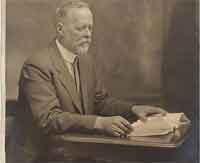
Benefits of Two Party System
Two party system is a political system where only two parties dominate during voting in all elections in each government level. There are many benefits that can be achieved through using the two party system and some of them are as follows.
1. Encourages political stability
Most historians believe that when a country uses a two party system, it encourages political stability. The two political parties are forced to find a common position that benefits the entire country. This kind of system also promotes agreement among the legislators, which increases political stability.
2. Simple voting process
The two party system offers an easy time when it comes to voting. This is because the voter does not need to take a lot of time to make a choice. If a voter is dissatisfied with a specific party, he or she can then vote for the other party. Furthermore, there are only two choices and this means that voting can take place much quicker in contrast with a multi-party system where very many candidates are listed.
3. Easier to govern
A vital benefit of the two party system is that it is very easy to govern. There is also more harmony and less friction in this two party system. In fact, this particular form of governance encourages more participation by legislators in government. However, the multi-party kind of system can sometimes result in hung parliaments.
4. Lowers corruption
The two party system has been linked to lower cases of corruption. The main reason for this is that the leaders are forced to think about their people since they can easily vote for the other rival party during the next election.
The shortcoming of the two party system is the fact that a voter has limited options during voting, especially if the voter is dissatisfied with both parties.
Only half of these points have any truth to them. Starting from top to bottom, I will explain why half of these are weakly supported propaganda statements at best.
“Encourages Political Stability”-NO
In theory, the two parties would have to find common ground to benefit the nation. In the real world, a very different system is practiced. For instance, in the United States the speaker of the house assigns a majority of his/her party members to all of the important committees that the speaker assigns the important bills to. Once the bill passes through the majority party in the HOR (House of Reps.), it moves on to the Senate. If there is not a large majority in the house 60/100 (60 because of the filibuster), then the bill will not pass the Senate. Finally, if the same party controls both the HOR and the Senate, the bill goes to the President. The President will decide if he/she likes it or not and then veto or ratify it. That is not cooperation, its rivalry. And thank God that the two-parties don’t come together on most issue because then there would be a rivalry between the people and a government that is TOO efficient.
“Easier to Govern”-NO
If there are only two parties it becomes much easier for one party to block the other. As I’ve described above, the majority party has the power to accomplish while the other party does not. However if the majority party does something that the people do not agree with, it does become easy for that parties officials to be replaced with the other parties’ officials who will strike down said policy (or at least campaign to do so).
In Summation, the majority party holds a lot more political power than the other in a two party system. However, the majority party cannot pass legislation that is too radical because the party officials will be voted out of office.
PS: Look for my book “The Awkward third Party” on iBooks. -To be released in June, 2013
The author of the article forgot to mention the 3rd ( most powerful ) party. The ” lobbyists ” party. They control both ( pathetic ) – so called ” representative ” parties. This article reeks of ” propaganda ” to disguise the truth, and perpetuate the status quo.
state the author that wrote it